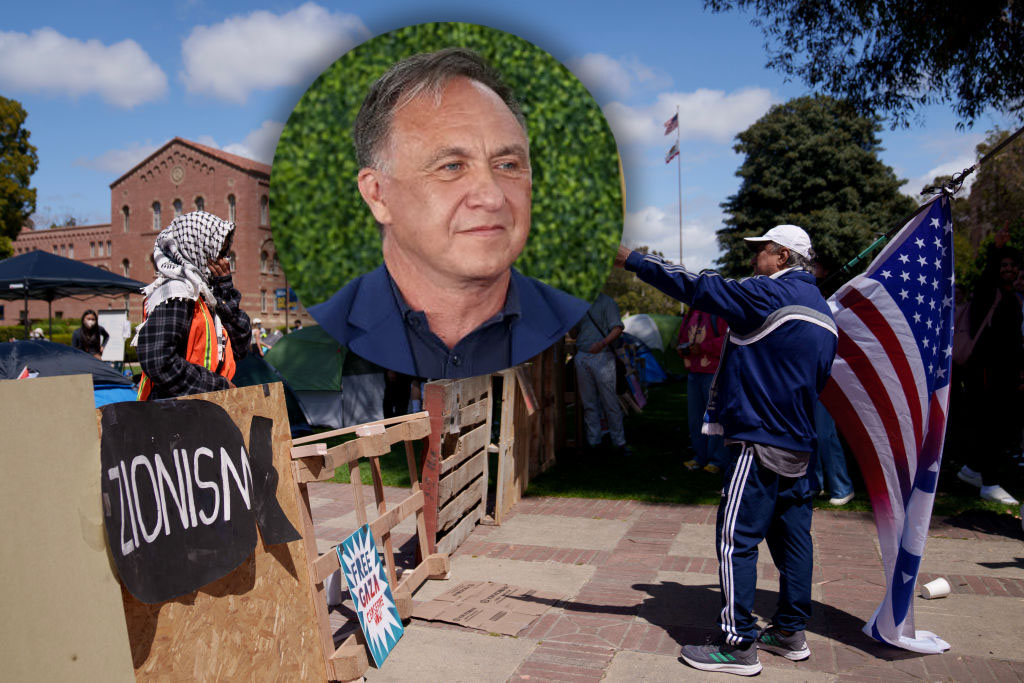“I teach them correct principles, and they govern themselves.” – Joseph Smith, explaining to a legislator how he managed to govern so many Mormons
——-
In two days the nation’s Jews and Mormons will join their fellow citizens in electing political leaders to local, state, and national offices. While I try to document on this blog where the two communities converge, there is no denying an obvious difference: Jews are second only to blacks in their support for Democrats, and Mormons are probably the reddest religious group in the country.
While many rabbis believe that they are following in the “prophetic tradition” by speaking out on the issues of the day from the pulpit, LDS leaders – who actually believe they are led by prophets – almost never address political issues in their sermons. Many of my non-Mormon friends were surprised to learn that the one place where former presidential candidate Mitt Romney could not deliver a political speech during his campaign was an LDS chapel. In my lifetime, I can only recall our leaders asking members to vote a certain way on two political issues that we considered to be primarily moral issues: gay marriage and the ERA (Equal Rights Amendment), both of which were viewed as threats to the traditional family.
In my opinion, local Church leaders sometimes make it harder for political representatives to be responsive to the LDS community by going to great lengths to avoid even the appearance of taking sides in partisan races. I was able to attend two town hall meetings this month at the Stephen S. Wise Temple in Los Angeles. Hundreds of people showed up to hear a gubernatorial and a senatorial candidate respond to the questions and concerns of the Jewish community (candidates from both parties were invited, but the Democrats declined). I don’t see why a similar forum couldn’t be held for the LDS community at a large stake center. The person conducting could read a statement about the Church’s political neutrality and mention that the candidates are there to present their views on issues of concern to our community. Since we don’t invite political candidates to meet the Mormon masses (outside of Utah, at any rate), the only Mormons most of them meet are Public Affairs representatives from the Church, LDS colleagues, or Mormon “brokers” who have a personal relationship with them. I firmly believe that if more politicians were invited to address the LDS community in public forums, they would be more responsive to our needs. When a mob charged our temple in Los Angeles in 2008 following the Proposition 8 vote on gay marriage, not one politician in Los Angeles issued a statement of support for the LDS community. Had a synagogue or mosque been attacked, such a response would have been inconceivable.
Nineteenth-century Mormons would find many of their contemporary counterparts’ political preferences shocking, to say the least. Virtually every Mormon in the Utah territory, including Brigham Young, was a Democrat owing to the Republicans’ adamant opposition to statehood for Utah. Before Utah gained statehood in 1896, Church leaders assigned many families to political parties in an effort to show that bipartisanship was alive and well in the territory. Both the New Deal and the Great Society converged with Mormon teachings concerning charity and helping the less fortunate, leading to decisive victories in Utah for FDR (all 4 elections), Harry Truman, and Lyndon Johnson. From what I have been told by erstwhile Mormon Democrats of a certain age, many of them who made the switch did so after the Democratic Party adopted a liberal platform on social issues in the 1970s. Indeed, almost all Mormon Democrats I know disagree with many of their party’s views on controversial social issues.
Be that as it may, most Mormon Republicans in my social circle are complaining not about President Obama’s Supreme Court picks or his views on abortion, but what they perceive as the expanded role of government under his administration. There has always been a libertarian streak in LDS culture (perhaps owing to government persecution in the Church’s first few decades), and Mormons today preach and teach self-reliance. Most active Mormons have a food storage program in their home and an emergency preparedness kit for each family member. In addition, the Church runs an extensive welfare program and staffs employment counseling and placement offices worldwide (both services are available to Mormons and non-Mormons). Most Mormons, like Jews, look first to their own community for help in time of need. It is, of course, somewhat ironic that members of the same religious community that provides leading candidates for the armed forces, FBI, CIA, the State Department and other government agencies are also somewhat reluctant to expand the role of government in their lives.
As much as I would like to see Mormons and Jews collaborate in as many ways as possible, it is unlikely that most non-Orthodox Jews and Mormons will be punching identical ballots on Election Day for the foreseeable future as long as the Democratic Party continues to express liberal views on certain social issues. Mormons have voted in the past for candidates who personified increased government spending (FDR, LBJ), and it is possible that as more LDS families are affected by the current economic troubles, more Church members will be willing to fund and accept government largesse. However, it is unlikely that many Mormons will leave the Republican Party in order to embrace one that advocates support for positions that are contrary to their Church’s moral teaching.





















 More news and opinions than at a Shabbat dinner, right in your inbox.
More news and opinions than at a Shabbat dinner, right in your inbox.